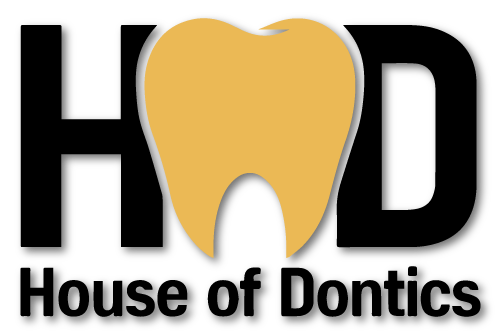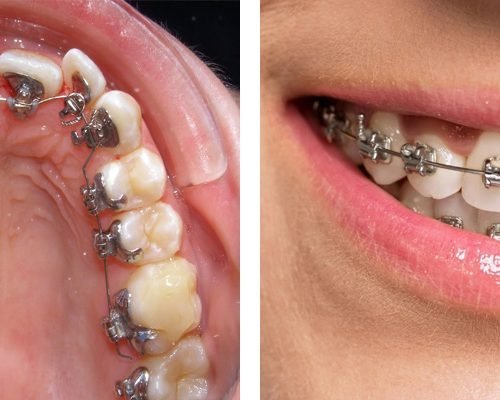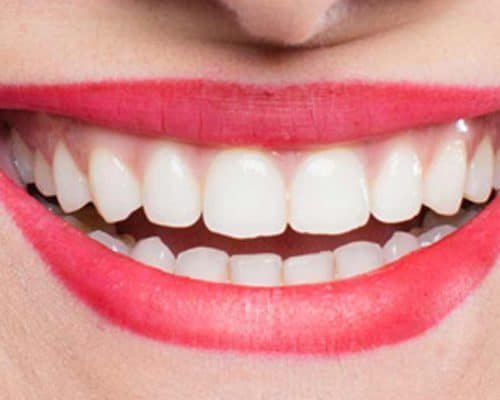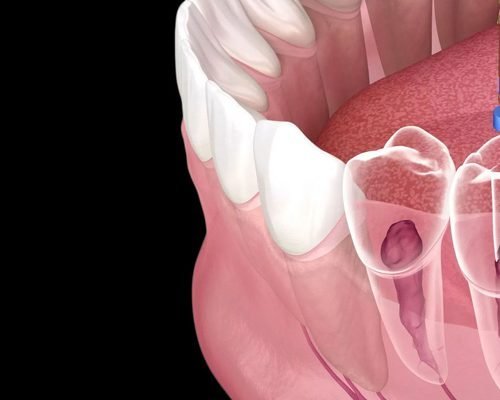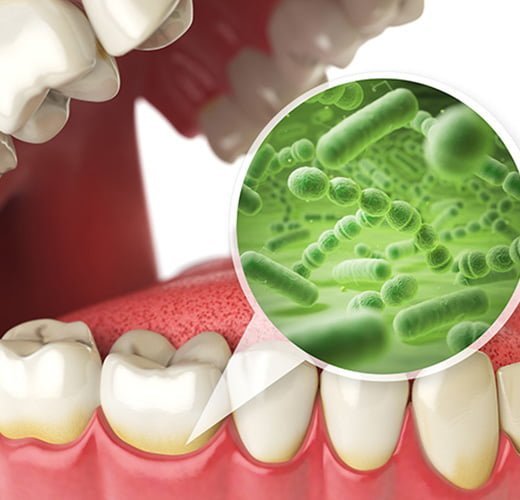
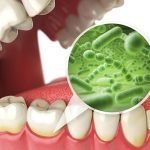
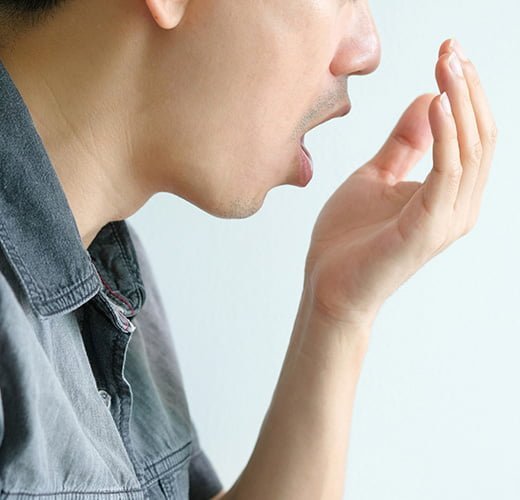

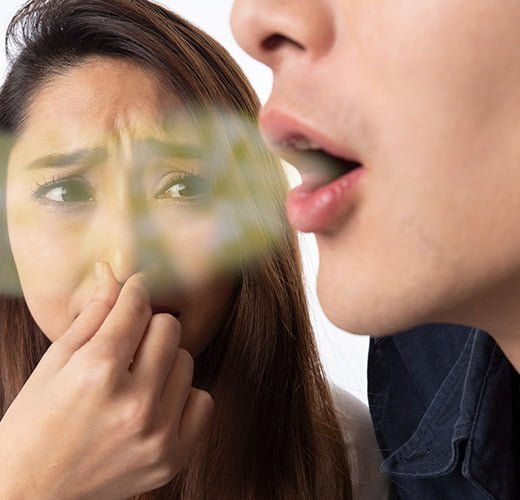

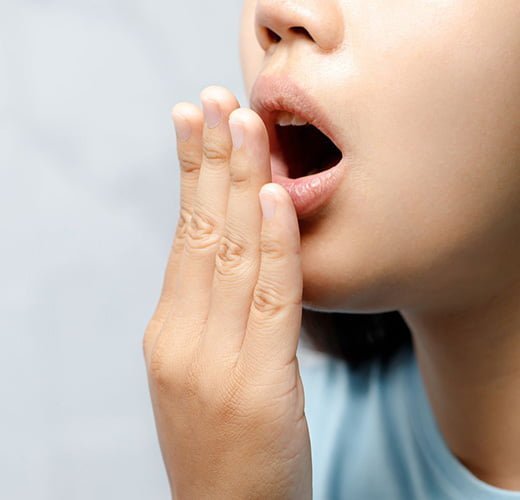

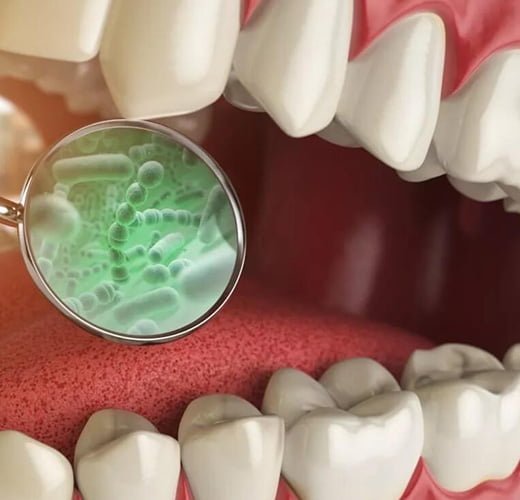
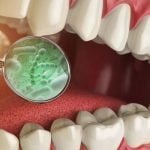
Bad Breath Treatment
Bad breath, also known as halitosis in medical terms, can be socially uncomfortable and potentially serious health issues. It is estimated that up to 25% of people have chronic bad breath. While bad breath is acceptable on occasion, persistent halitosis may indicate an underlying health condition that requires treatment.
The most common cause of bad breath is poor oral hygiene. When food particles and bacteria build up in the mouth, they can create a foul odor. Regular brushing and flossing, along with visits to the dentist for cleanings and check-ups, can help keep bad breath at bay. Certain foods, such as onions and garlic, are well-recognized to have a visible effect on our breath. This is due to the fact that these foods are absorbed into our bloodstream and subsequently travel to our lungs, resulting in the emission of unpleasant odors. However, the symptoms of food-related foul breath are only transient and should go away in a few hours. However, foul breath caused by tobacco use, smoking, periodontal (gum) disease, insufficient denture cleaning, or medical conditions such as sinus infections, respiratory tract infections, and diabetes necessitates immediate medical intervention. Failure to manage foul breath caused by these factors might lead to further oral health problems. The harmful effects of poor breath can spread beyond the mouth, potentially affecting the bloodstream, lungs, and stomach.
At House of Dontics, we offer treatment for halitosis (bad breath) by providing a professional cleaning and oral cleanse that can reach areas that may not be accessible with regular brushing and flossing. We use the latest methods and products, such as the Breath Rx Treatment, to effectively treat our patients. If gum disease is determined to be the underlying cause of the halitosis, we may recommend a deep cleaning procedure called scaling and root planing. This treatment removes plaque and tartar buildup from below the gum line and smooths out any rough spots on the tooth roots to prevent bacteria from accumulating. Additionally, if the source of the bad breath is found to be the tongue, we can perform tongue scraping to help alleviate the problem.
We realize how uncomfortable and frustrating bad breath can be, which is why we are dedicated to providing our patients with personalized and effective halitosis therapies. If you are experiencing foul breath, please contact the House of Dontics to book an appointment to discuss your treatment options.
Unveiling Our Treatment's Unique Strengths

White coating on the tongue
A white coating on the tongue, especially at the back of the tongue, can be a sign of poor oral hygiene, oral thrush, or a yeast infection. It can also be a symptom of an underlying medical condition.

Dry mouth
Dry mouth occurs when there is a decrease in saliva production. It can be caused by medication, dehydration, and certain medical conditions. A dry mouth can contribute to bad breath and a metallic taste.

Build up around teeth
A buildup of plaque around teeth can lead to gum disease, bad breath, and tooth decay. It is important to practice good oral hygiene, including brushing and flossing regularly, to prevent plaque buildup.

Post-nasal drip or mucous
Post-nasal drip occurs when excess mucus drips down the back of the throat. It can be caused by allergies, colds, and sinus infections. Post-nasal drip can contribute to bad breath and a constant need to clear the throat.

Morning bad breath and burning tongue
Morning bad breath can be caused by dry mouth, poor oral hygiene, or a medical condition. A burning tongue can be a symptom of an underlying medical condition, such as oral thrush, acid reflux, or a vitamin deficiency.

Halimeter
This is a device that measures the level of sulfur compounds in your breath, which can contribute to bad breath. It helps dentists to determine the underlying cause of bad breath and recommend appropriate treatment.

Laser treatment
Some dentists use lasers to remove bacteria and infected tissue from the gums, which can cause bad breath. This treatment is quick and painless, and can effectively reduce bad breath.

Air abrasion
This is a gentle, non-invasive technique that uses a stream of air and particles to remove plaque and bacteria from the teeth and gums. It can help to eliminate the bacteria that cause bad breath.
Showcasing Exceptional Outcomes of Our Surgeries
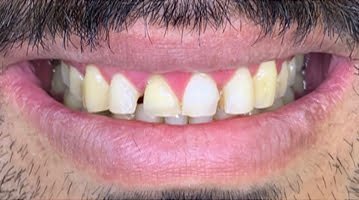
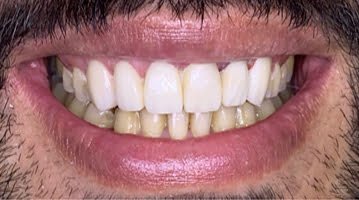
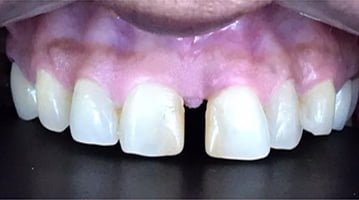
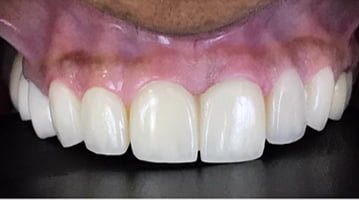
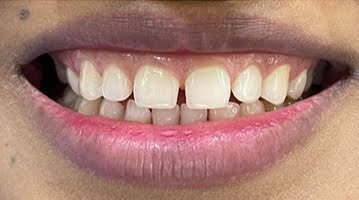
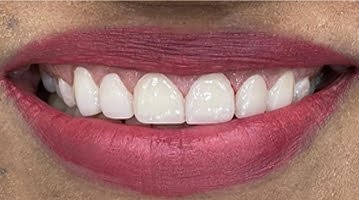
Unleash Your Dazzling Smile Today!
- Proper oral hygiene is the cornerstone of tackling bad breath. This includes brushing your teeth at least twice a day, flossing daily, and using an antibacterial mouthwash. Don’t forget to brush or scrape your tongue too as it can house bacteria that produce bad odors.
- Certain foods such as onions, garlic, and spicy foods can cause bad breath. Drinks like coffee and alcohol can also contribute. Limiting these in your diet and drinking plenty of water to keep your mouth hydrated can help reduce bad breath.
- Regular visits to the dentist for a check-up and cleaning can help detect any oral health issues that might be contributing to bad breath. Issues such as gum disease, cavities, and oral infections can all cause bad breath.
- If you’re a smoker, quitting can greatly improve your oral health and eliminate one common cause of bad breath.
- Conditions such as diabetes, acid reflux, and certain liver or kidney diseases can cause bad breath. If you have a chronic illness, ensuring it is well-managed can help improve bad breath.
- Brush your teeth twice a day with fluoride toothpaste to remove food particles and plaque.
- Floss at least once a day to remove food particles and bacteria from between your teeth.
- Use an antibacterial mouthwash to kill bacteria and freshen your breath.
- Drink plenty of water to keep your mouth moist and prevent dry mouth, which can contribute to bad breath.
- Avoid smoking or using tobacco products, which can dry out your mouth and contribute to bad breath.
- Avoid foods that can cause bad breath, such as garlic, onions, and spicy foods.
- Chew sugar-free gum or suck on sugar-free mints to stimulate saliva production and freshen your breath.
- Visit dentist regularly for check-ups and professional cleanings to keep your teeth and gums healthy.
Understanding Root Causes of Dental Issues

Poor oral hygiene
If you don't brush and floss your teeth regularly, food particles can remain in your mouth and produce bacteria that cause bad breath.

Dry mouth
Saliva helps to cleanse the mouth and neutralize the acids produced by bacteria. If you have a dry mouth, such as due to medications, you may have less saliva production and experience bad breath.

Certain foods and drinks
Foods like garlic, onions, and coffee can produce a strong odor in the mouth that lingers even after brushing.

Smoking and tobacco use
Smoking and other tobacco products can cause a foul smell in the mouth and contribute to gum disease, which can also cause bad breath.

Health conditions
Some medical conditions, such as sinus infections, respiratory tract infections, and gastrointestinal problems, can cause bad breath.

Medications
Certain medications, such as those used to treat high blood pressure or depression, can cause dry mouth and bad breath as a side effect.

Gum disease
When bacteria build up in the gums, they can produce a bad odor and contribute to gum disease, which can also cause bad breath.

Oral diseases
Oral tumors, oral cancer, Mouth ulcers
Our Treatment Process
Oral Examination
Cleaning
Underlying Conditions
Oral Hygiene Education
Frequently Asked Questions
Patient Testimonials



Blogs
Lingual Braces vs. Traditional Braces: Comparing the Differences
Enhance Your Smile and Boost Your Self-Image with a Smile Makeover
Getting Ready for Your First Root Canal Treatment - The Need-to-Know Details
Explore Our Comprehensive Dental Services
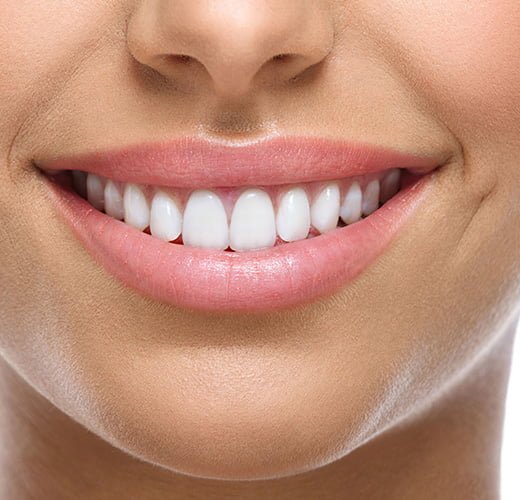
Laser Gummy Smile Correction
One of the first things you observe about someone is their smile. Have you ever realized that when you smile, more gums are visible than your white, shiny teeth? If yes, then you might have a gummy smile. If you have minimal gum tissue showing, you will have an attractive smile.
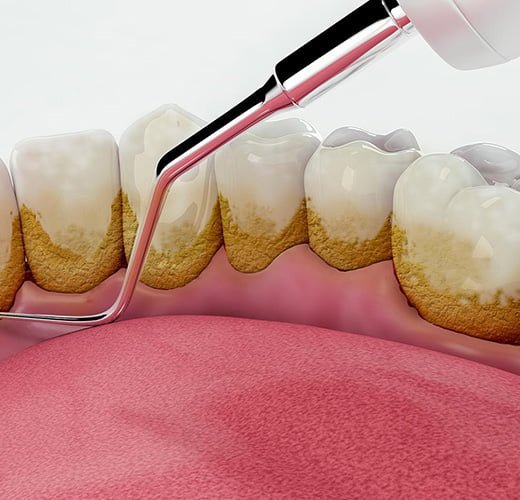
Full Mouth Scaling & Polishing
Full mouth scaling and polishing is a dental procedure that is used to remove plaque, tartar, food debris, extrinsic stains, and other debris from the teeth and gums. This is an im
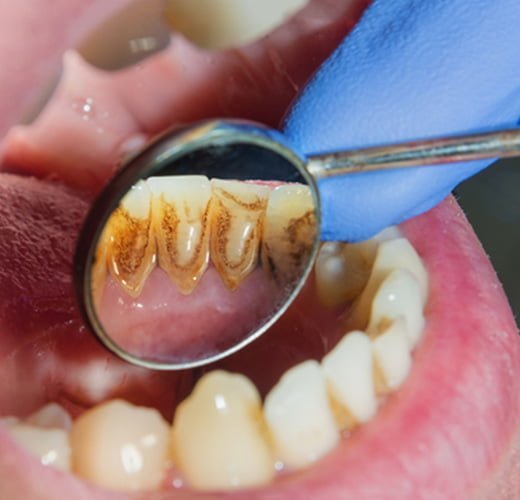
Deep Cleaning
Teeth deep cleaning, also known as scaling and root planing, is a dental procedure that deeper cleaning that goes under your gums to prevent or cure gum disease. It is ofte
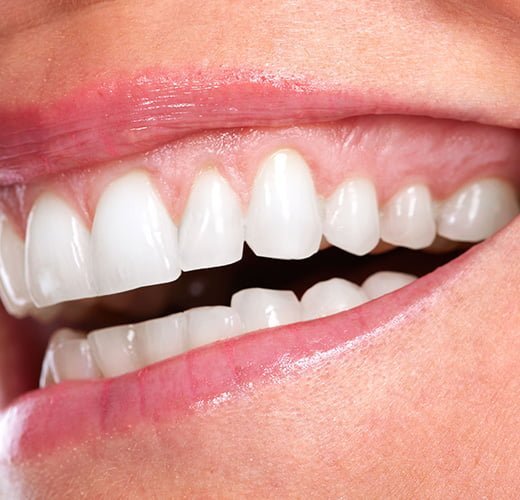
Gums Surgery
Periodontal disease, also known as gum disease, is a severe infection that affects the gum tissues. The root cause of this condition is the accumulation of harmful bacteria on the surface
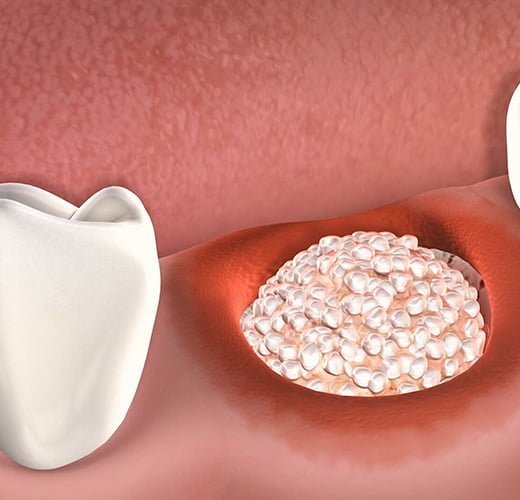
Socket Preservation Therapy
Losing a tooth can be a difficult and stressful experience. Whether it is due to injury, decay, or disease, the loss of a tooth can have negative effects on your oral health, appearance, and
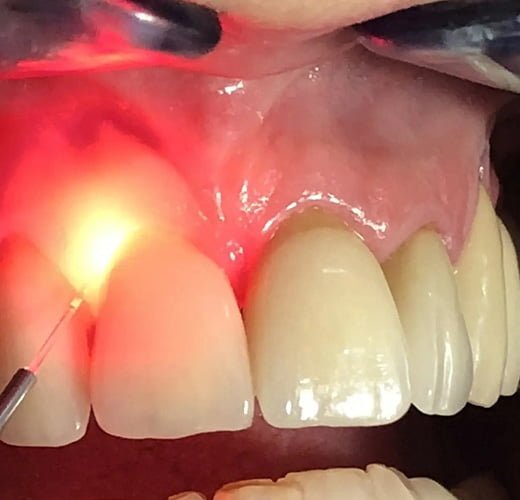
Laser Gum Depigmentation
Excessive pigmentation of the gums resulting in a dark or blackened appearance is caused by the abundance of melanin, the same pigment that determines skin color. Individuals with darker skin
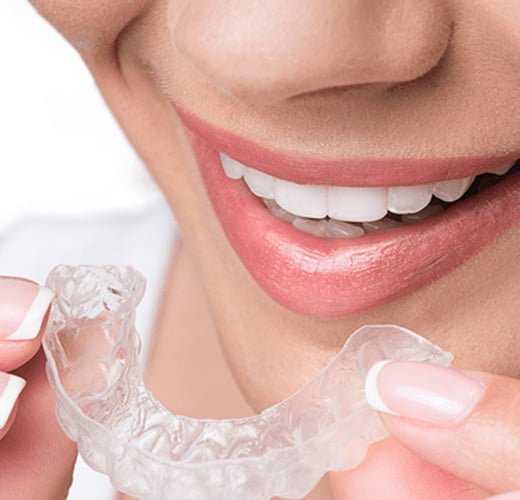
Mobile Teeth Solution with Splinting
Although your teeth may appear clean, sparkling, and in good condition, there may still be underlying issues that you are unaware of. If you experience difficulty chewing or notice your teeth appearing loose
